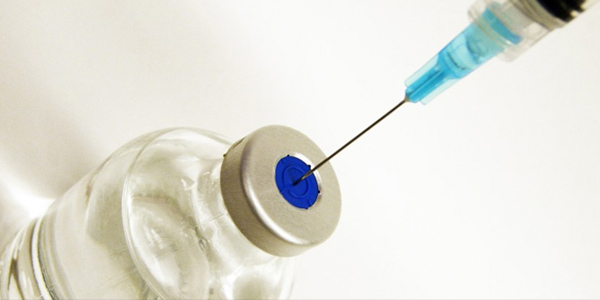What is Haemophilus influenzae type b?
[the_ad id=”13371″]
Haemophilus influenzae type b (Hib) is a bacterium that infects the lining of the brain, causing meningitis. Before the Hib vaccine, Hib was one of the most common cause of meningitis, whichcauses fever, stiff neck and drowsiness. Children even after recovery from the disease can suffer from paralysis deafness, blindness or mental impairment. Other infections caused are bloodstream infection (sepsis), pneumonia, bone infection, epiglottitis. Perhaps no disease was more frightening than this last one. The epiglottis, a membrane that sits on top of the windpipe, prevents food from entering the windpipe when swallowing. When the epiglottis is infected, it occludes the windpipe, causing suffocation and occasionally death. Before the Hib vaccine was introduced in 1992, about 25,000 children every year globally would get serious and occasionally fatal infections with Hib.
How do you catch Hib infection ?
Hib is a bacterium that is commonly found lining the surface of the nose and the back of the throat. Many children will come in contact with Hib sometime in the first five years of life with more serious consequences in children younger than 2 years. It spreads via respiratory routei.e. sneezing and coughing.
How do I protect my baby from Hib?
Vaccines protecting against Hib are available as:
- Combination vaccine (Pentavalent/ Quadrovalent/ Hexavalent) : in combination with DPT/ Hepatitis B/ Injectable polio
- Standalone vaccine (monovalent)
Schedule for the vaccine:
- > 6 months: At 6/10/14 weeks OR 2/4/6 months of age as primary immunisation followed by booster at 15 – 18 months
- 6 months to 1 year: 2 doses 4 weeks apart as primary immunisation followed by booster at 15 – 18 months
- < 15 months: single dose
Hib vaccine should not be administered before 6 weeks. Atleast one dose of Hib vaccine should be given after the first birthday.
It is given as an injection into the muscle usually in the thighs in babies.
Please don’t delay the schedule as younger children are more prone for serious HiB infections
Do adults need to be given the vaccine too?
High risk adults like adults who have undergone a removal of spleen, have sickle cell disease or are immunocompromised should take the vaccine.
Is the Hib Vaccine Safe? What side effects can it cause?
The vaccine is safe. Rarely, soreness, swelling, or redness at the site of the injection. There are no serious side effects, and severe allergic reactions are rare.
As a combination however the side effect profile is different depending on the other vaccines used in combination.
Can It Be Given With Other Vaccines?
It is safe to give the vaccine with other vaccines or in a combination vaccine. The Hib combination vaccine is generally given as part of a child’s regular vaccination routine.
- In combination with DwPT – Quadrovac, COMVAC4, Easy 4, Tetra ActHib
- In combination with DwPT + HepB : Pentavac SD, Easy 5, Comvac 5
- In combination with DaPT + IPV : Pentaxim
- In combination with DaPT + IPV + HBV : Hexaxim
Once vaccinated with the Hib Vaccine, Can my baby Still Get Meningitis?
The child will be protected against getting Hib meningitis if he or she receives the Hib vaccine. But there are other germs that can cause meningitis, so it’s still possible to develop meningitis at some point. The risk, though, is far less than it would be without the Hib vaccine.
Should children who recover from invasive Hib disease be vaccinated?
Hib invasive disease does not always result in development of protective antibody levels. Children younger than 24 months of age who develop invasive Hib disease should be considered susceptible and should receive Hib vaccine.
If a dose of Hib vaccine was given by mistake to a 4 week-old, should further doses of Hib vaccine be given?
Limited data suggest that Hib vaccine given before 6 weeks of age may induce immunologic tolerance to Hib antigen and reduce the response to subsequent doses. As a result, Hib vaccine should not be given earlier than 6 weeks of age. However, if a dose was administered before 6 weeks of age, it should not be counted as part of the Hib series.
Source:

